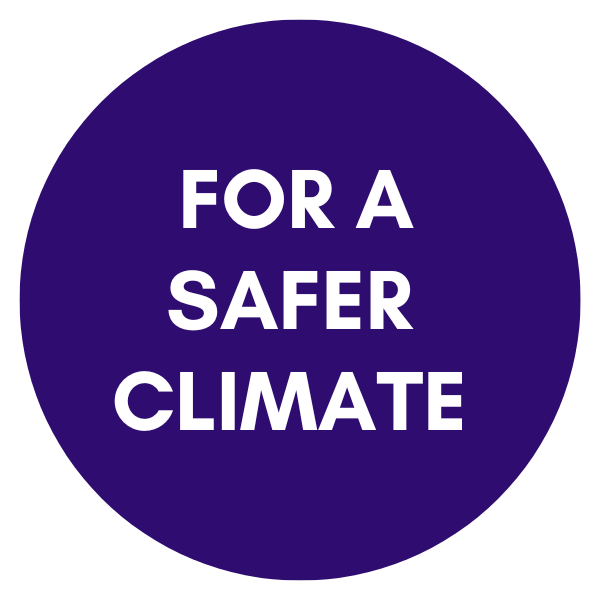Safer Climate joins EU Community of Practice on Citizen Engagement
Citizen engagement for knowledge valorisation: what is it and why should we care?
Safer Climate representative Rosa Rantanen has recently joined the community of practice on citizen engagement for knowledge valorisation, coordinated by the European Commission. She has also been selected as one of the core group members in the same process. But wait a second - what does any of this actually mean?
As the European Commission research & innovation website states, “Citizen engagement in knowledge valorisation helps shape new models and innovative solutions responding to societal needs. By broadening the participation in knowledge valorisation processes to such actors, especially those on the demand side of research and innovation (users, consumers, citizens), there are increased opportunities to expand innovation capacities. This can also ensure that the benefits of innovation are shared with all parts of society”. They continue that “Innovative solutions that stem from such participatory processes, including those involving new technologies, new business models, behavioural change, and social innovations, are often more socially acceptable”.
So, in a nutshell, solutions shared and designed with the people are better and more useful for the people. In principle this sounds great, which is probably why there is a continuous and growing interest in citizen participation in the EU, in decision-making in general, in product development and in research projects. But citizen engagement is a multifaceted and demanding field that requires expertise and experience. You have to think of who to engage and how, what are your reasons behind asking citizens to participate and what is in it for them. How can you assure that your research & collaboration methods are ethical, support diversity and accessibility, and take into account prevailing power dynamics and vulnerabilities? At the end of the day, the meaningfulness of citizen engagement also comes down to fundamental questions such as what do we mean by citizen and what do we mean by participation. In the case of academic research, we also need to ask what is the role of the researchers, the funding agencies and the other professionals working in academia; who should take the lead in science communications, citizen science, and planning participatory methods? These are also some of the questions that have been and will be discussed in the community of practice and its core group. Now we encourage you to take part in the discussion! This is a shortcut to get your ideas heard by the European Commission representatives and other community members.
If you have any comments, questions or good practices to share with the EU-level community, please contact us (rosa.rantanen@helsinki.fi) and let us take your message with us to the next meeting.
In 2023, the EU Commission is hosting communities of practice on in citizen engagement for knowledge valorisation and on industry-academia collaboration for knowledge valorisation. The discussions of the groups will be used to create documents called Code of Practice. The Codes of Practice will support Council Recommendations on the guiding principles for knowledge valorisation to provide guidelines for national, regional and local policy makers to maximize the transformation of research and innovation results into solutions that benefit society. You can read more about the process here.

